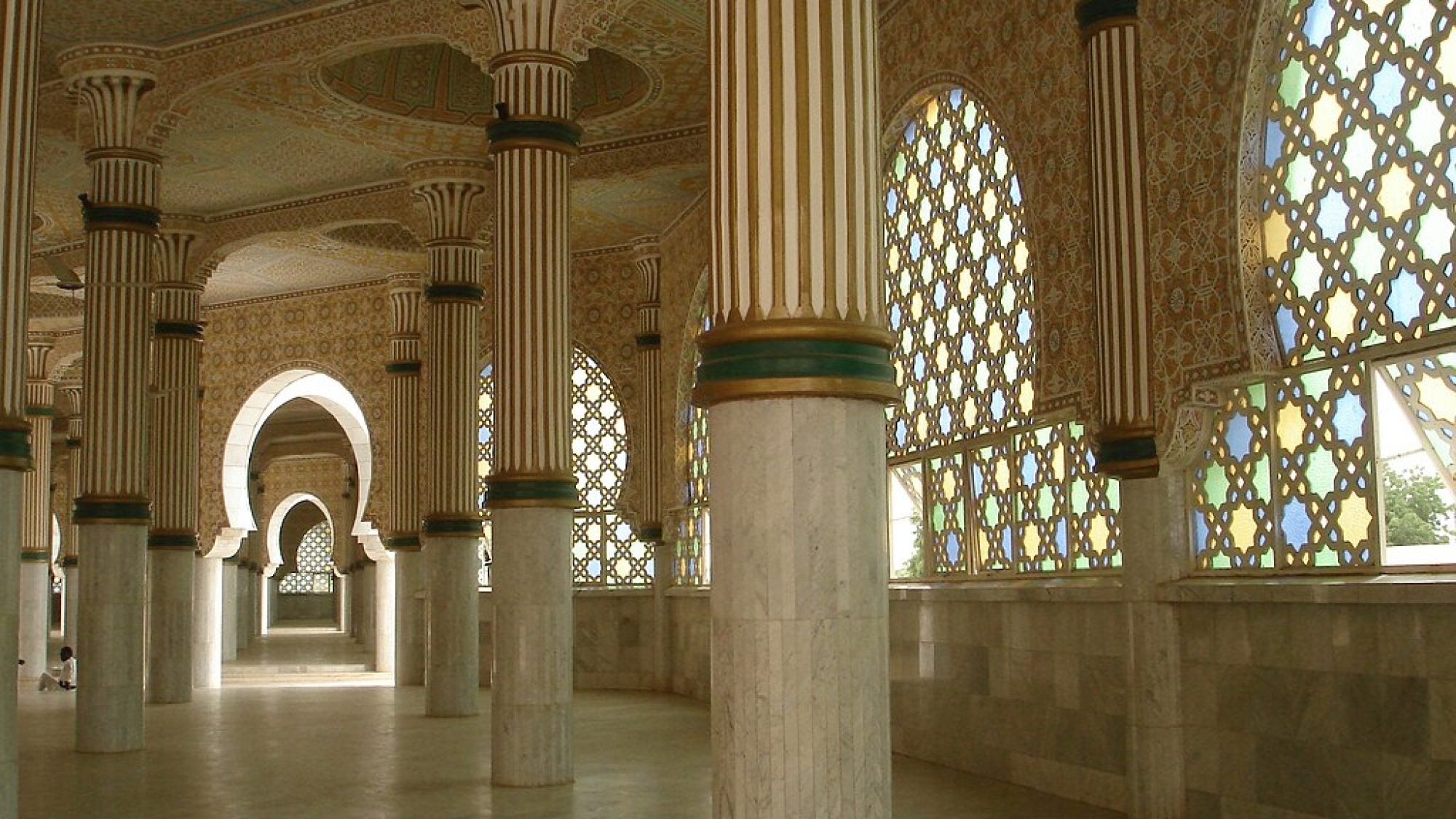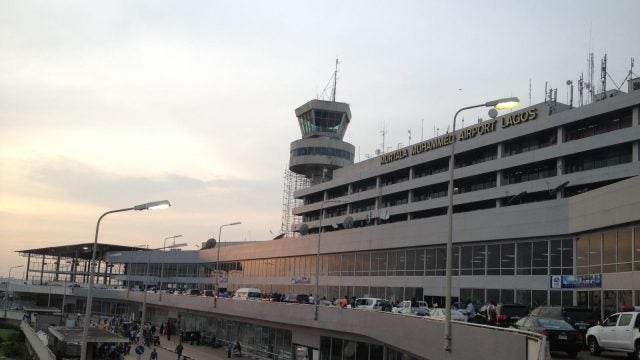
Title: The Place Of Mouridism In Senegalese Civil Society
Islam in Sub-Saharan Africa assumed the form of Sufi brotherhoods nearly three centuries ago. Within each order of Sufi brotherhoods, appointed spiritual guides called marabouts transmit teachings to loyal followers. While Senegal counts a handful of brotherhoods, the Mourides stand alone with unequalled economic influence and an uncanny sway over political happenings. The signals are ubiquitous: depictions of famed mystic guides and grandiose spiritual edifices abound on tSracts of concrete, leather amulets, and taxi dashboards. Beyond their cultural prevalence, Mourides boast nontrivial commercial holdings like Touba Oil and hold a steady hand over the former French colony’s Presidential Palace.
In 1883, colonial rule precipitated the emergence of Mouride founder Cheikh Amadou Bamba, a Sufi standard-bearer, exile, and nonviolent critic of French authority. The city of Touba, founded by Amadou Bamba in 1887, remains the epicenter of Mouridism to this day. My own journey to the holy city brought me through the gates of Touba’s Great Mosque, which boasts a 285-foot minaret and resplendent marble flooring. Shoeless, we circled the massive structure to absorb a modicum of its grandeur.
During and beyond Bamba’s leadership, the Mouride work ethic manifested itself in daraas, or decentralized agricultural cooperatives under a single marabout. Cheikh Amadou Bamba infused Sufi Islam with the precept of hard work. Today, a corrupted variant of the sect’s trademark institution has resurfaced in metropolitan centers like Dakar. Overcrowded daraas stand as hotbeds for child trafficking and physical abuse by miscreants who set onerous collection quotas and masquerade as religious guides. The students, known as talibés, beg barefoot in the tens of thousands in order to cheat death and earn their daily bread. In small groups, they weave through rush hour traffic from vehicle to vehicle, knocking on closed windows to extend an empty palm. Even during my five-minute commute to class I was unable to dodge this lamentable evidence of exploitation. Invariably, my first steps out the door were met by a handful of rag-clad young boys pleading for charity. That said, today’s daraa is a troubling social phenomenon that both obscures and strays from the Mourides’ core principles.
Owing to a tight-knit arrangement grounded in solidarity, the brotherhood has deftly carved out an ever-expanding niche in the Senegalese socioeconomic landscape. Rural groundnut enterprises marked a point of departure for the industrious Mourides, and growing secondary and tertiary sectors have facilitated the growth of modern merchant ventures as well. Holding to the notion that physical labor is the path to salvation, Mourides have gained a toehold in political life, fueled by their impressive commercial ascension. Sheer size is in play as well: Mourides comprise close to 40% of the electorate and claim a ballooning diaspora population. Last summer, a brief visit to Harlem’s Little Senegal was eerily akin to my weekends spent navigating Dakar’s bustling Sandaga market. Mourides have developed noteworthy repositories of social capital from Rome to New York’s Morningside Heights neighborhood, pockets of prosperity sustained by remittances and deft coordination with counterparts overseas.
The Mourides have leveraged spiritual rigor and market power to guarantee that the road to the Presidential Palace runs through Touba. For the brotherhood, large-scale infrastructure projects and state finances are at stake, a salient dimension of President Wade’s administration from 2000 until his demission in March. Marabouts reveal their political preferences as edicts that favor specific candidates and proposals. Preceding the presidential election last March, senior leader Cheikh Béthio Thioune threw his weight behind incumbent Abdoulaye Wade, a devoted Mouride, and urged his 11 million followers to do the same. During his inaugural visit to Touba last July, current president Macky Sall arrived two hours late in the living room of Grand Marabout Moukhtar Mbacké, who noted of his favored predecessor, “Abdoulaye Wade was always punctual.”
All the same, any statement about Mouride preeminence must be qualified by a nod to history. Léopold Senghor, a Roman Catholic, governed the youthful nation and willfully ceded power after two decades. Since 1980, Senegal has witnessed two peaceful democratic transitions and a robust civil society. For the last 130 years, Mouridism has taken root amidst the climate of religious tolerance and constructive interfaith dialogue that has perpetuated harmony and curbed outright hostility along ethnic and religious lines. Moreover, Senegal’s mystic Sufism serves as a timely counterweight to reductionist blanket statements that wed Islam to violence.
To the extent that President Macky Sall cedes to Mouride pressure, he will face difficulty addressing a dire human trafficking situation in the urban daraas, which may in turn jeopardize considerable goodwill with western donors like the United States. So far, President Sall’s guardedly cavalier manner toward Touba suggests that the young head of state will respect the mainstay of Senegalese civil society, but he is equally prepared to govern unfettered by custom.
Alex Villec is a senior at Georgetown University studying Government. He has worked with Zidisha Microfinance in Senegal to evaluate the effectiveness of microcredit in breaking cycles of poverty. More recently, he has studied the impact of financial education on savings behavior in Nairobi, Kenya.
Image Credit: zivax, Wikimedia Commons
This is an archived article. While every effort is made to conserve hyperlinks and information, GJIA’s archived content sources online content between 2011 – 2019 which may no longer be accessible or correct.
More News

Africa accounts for approximately two percent of global air travel. Given the continent’s vast size and large distances between major trade hubs, enhancing intra-African air connectivity will be…

An estimated 7.9 million Venezuelans migrated abroad for the long term under President Nicolás Maduro’s rule as Venezuela’s political, economic, and social crises have deepened. Alongside rising Venezuelan migration, migrants…

Amid stalled U.S. federal climate engagement and intensifying transatlantic climate risks, subnational diplomacy has emerged as a resilient avenue for cooperation. This article proposes a Transatlantic Subnational Resilience Framework (TSRF)…